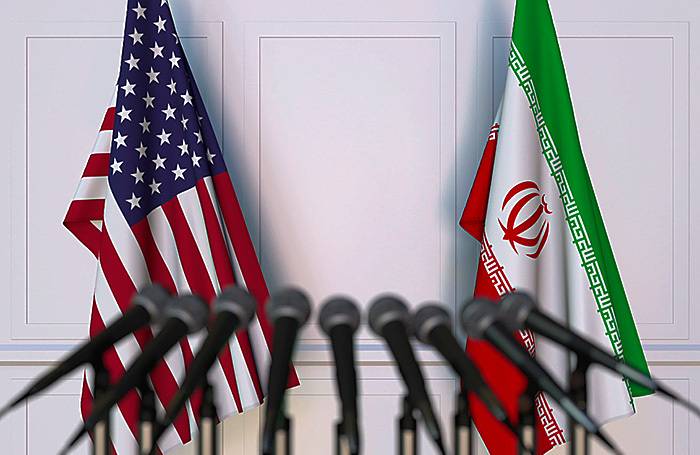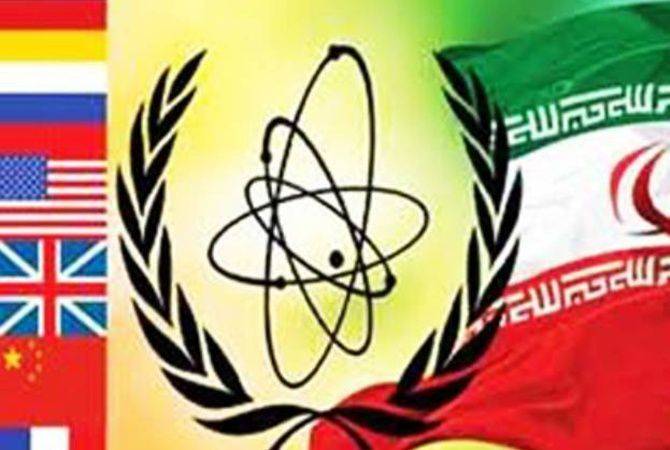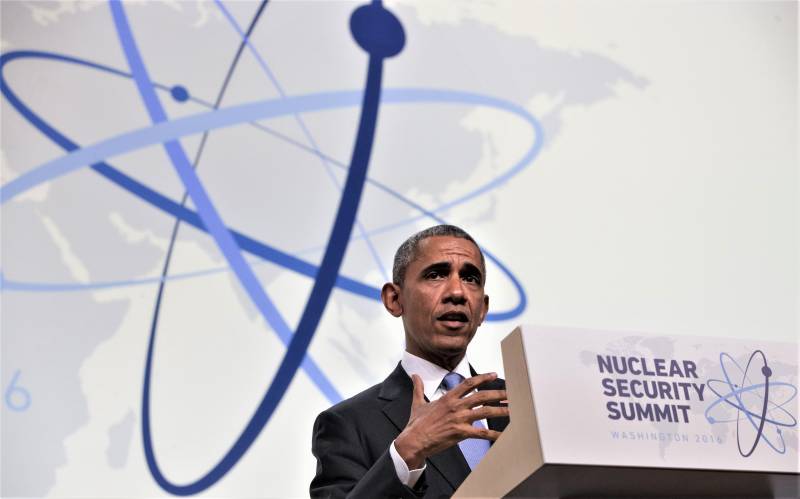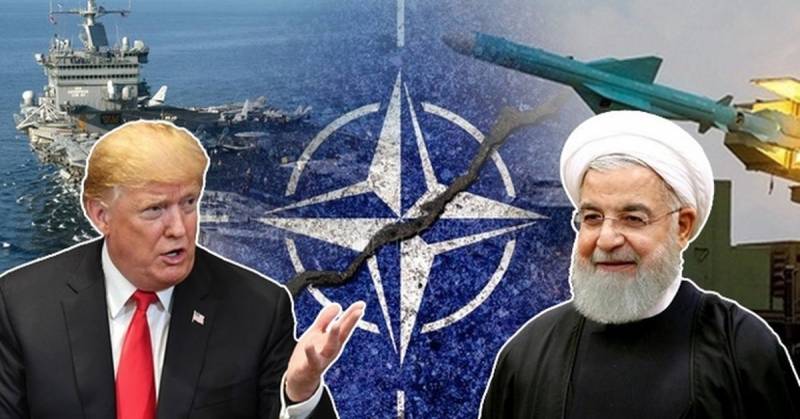Goodbye America. Is there a future for the nuclear deal?

Who doesn't believe Tehran
The United States lost the right to renew UN sanctions against Tehran, as it voluntarily pulled out of the Joint Comprehensive Nuclear Action Plan. This statement was made in Vienna by the Secretary General of the EU Foreign Service Helga Schmid.
More like an obsession, Washington’s desire to impose sanctions on Tehran on anyone is already annoying too many. Helga Schmid's statement was supported by representatives of Iran, Russia, Great Britain, Germany, China, France, that is, all participants in the well-known nuclear deal and the Joint Comprehensive Action Plan (JCPOA).
In unison with the European functionaries, the Deputy Minister of Foreign Affairs of the Russian Federation Sergey Ryabkov also spoke. He recalled that the JCPOA participants did not recognize the legitimacy of launching a mechanism for restoring UN sanctions against Iran. Not long before that, US Secretary of State Mike Pompeo limited himself to a simple notification to the UN Security Council about the restoration of US sanctions against Iran, which will take effect in 30 days.

Among other things, Washington is ready to extend for 13 years weapons embargo and introduce a ban on uranium enrichment, without taking into account the feasibility of such restrictions. The Americans seem to be particularly worried that Iran may receive Russian air defense systems, but it is not entirely clear how to implement the sanctions in practice.
As you know, negotiations with Iran on the limitation of its nuclear program were conducted for a very long time. As a result, in 2015, a Joint Comprehensive Action Plan was signed, which actually translated all Iranian developments on a peaceful track.
The treaty was then signed by seven countries. Apart from Iran, these are the USA, Russia, China, Great Britain, France and Germany. The "nuclear deal," which then US President Barack Obama said was "eagerly awaited by the whole world," limited the development of Iran's nuclear program in exchange for the gradual lifting of UN Security Council sanctions from the Islamic Republic of Iran.
According to the JCPOA, Tehran allowed IAEA observers to visit the country's nuclear facilities for 25 years. Almost all the enriched uranium was ordered to be exported from Iran. Subsequently, the export of nuclear materials was tightly regulated. The maximum permissible level of atomic fuel enrichment was also established, which excluded the possibility of creating atomic weapons in Iran.
Donald Trump, for whom it was fundamentally important to get rid of the legacy of the "democrat", even during his election program called the nuclear deal "a decaying rotten structure." In the second year of his rule, the new master of the White House made sure that the United States unilaterally withdrew from the JCPOA treaty.
The motivation turned out to be very dubious: supposedly the "plan" is not enough, more precisely, poorly regulates the development and containment of Iran's nuclear program. Such an open distrust of the IAEA specialists, who invariably admitted that Iran does not violate the terms of the JCPOA, could not find understanding from the US partners in the deal.
Most likely, this is precisely why, and also simply due to the fact that Washington did not even consider it necessary to hold at least preliminary consultations, not only Russia and China, but also the European participants: Great Britain, France and Germany, almost immediately refused to withdraw from the deal.
This, of course, did not prevent, and could not prevent the United States from restoring some sanctions against Iran and even introducing new ones. However, then a whole series of attempts followed to spread their own initiative to the whole world. In Washington, where they already got involved in trade and sanctions wars with everyone with whom it was only possible and impossible, they literally wanted to continue.
The United States began to seek an extension of the arms embargo against Iran not just anywhere, but in the UN Security Council. Experience shows that the American practice of independent economic pressure on competitors is not working well. That is why Washington regularly tries to act through the channels of NATO, various international associations, where it occupies leading positions, and, finally, through the UN.
In principle, in cases where a potential threat to the established world order does occur, this works. And it works even if Moscow or Beijing impose their veto in the Security Council. The powerful press of public opinion is sometimes very important, although Tehran almost never paid attention to this.
West will help us
Russian Foreign Minister Sergei Lavrov has repeatedly, in virtually every "atomic exacerbation" in Washington, noted that the United States is doing everything possible not to be bound by any multilateral obligations, and this is evidenced by Washington's position on extraterritorial sanctions.
Russia and China have invariably adhered to a pragmatic line with regard to Iran's nuclear program, relying on the data of the control measures carried out by the IAEA. As you know, before the US withdrawn from the JCPOA in 2018, Tehran strictly complied with all the conditions. Only on May 8, 2019, Iranian President Hassan Rouhani announced that Tehran was suspending part of its obligations under the nuclear deal.
Most likely, the partner's long-term and strict adherence to the standards of the nuclear deal, combined with the prospects for broad cooperation in the nuclear industry, influenced the position of other JCPOA participants: France, Great Britain and Germany. In fact, the US withdrawal from the agreements simply led to the fact that instead of the “6 plus 1” format, there is now “5 plus 1”.
In turn, the Iranian leadership has also always been guided exclusively by pragmatic interests. Favorable - unprofitable, and nothing else, although in the case of the JCPOA, as you know, Tehran still had to come to terms with extremely specific and rather strict restrictions.
In principle, Tehran's decision of May 8, 2019 changed little in the nuclear deal itself, since there was no talk of the creation of atomic weapons in the country. At present, Iran has only tried to free its hands in terms of fulfilling obligations to return atomic materials to the disposal of the IAEA, as well as in terms of the volume of materials with a higher degree of uranium enrichment.
This allows Iran to move faster in the development of non-military nuclear technologies, mainly related to energy and medicine. Nevertheless, it cannot be denied that, by "releasing" Tehran from its obligations under the JCPOA, Washington is actually giving it carte blanche to work on the military atom.
The last attempt by the US administration to promote at least some measures in the UN against such an intractable opponent as Iran was made by the US administration in August, when the election campaign began to gather momentum. The proposal was made, as they say, to the maximum: to restore the old sanctions in full.
In this regard, one cannot but recall that the agreements on the JCPOA were reached during the reign of Barack Obama. Democrats generally regard them as one of the key elements of the legacy of the black owner of the White House, which Donald Trump destroyed somewhere, but in some ways was simply squandered.
Most likely, Washington did not expect anything else, but most members of the UN Security Council did not support the US attempt to restore sanctions against Iran. The first "no" was sounded on August 14, the second - on the 25th. Confirmation followed on the first day of autumn.
After a short pause, the Deputy Minister of Foreign Affairs of the Russian Federation Sergey Ryabkov commented on the situation the day before:
- Alexey Podymov
- pikabu.ru, media.spokesman.com, cdn.bfm.ru


Information